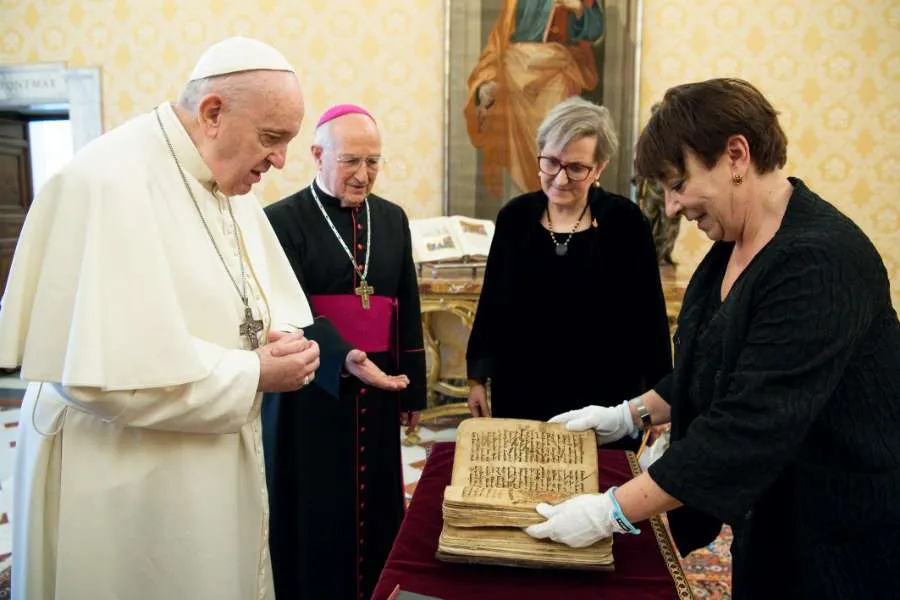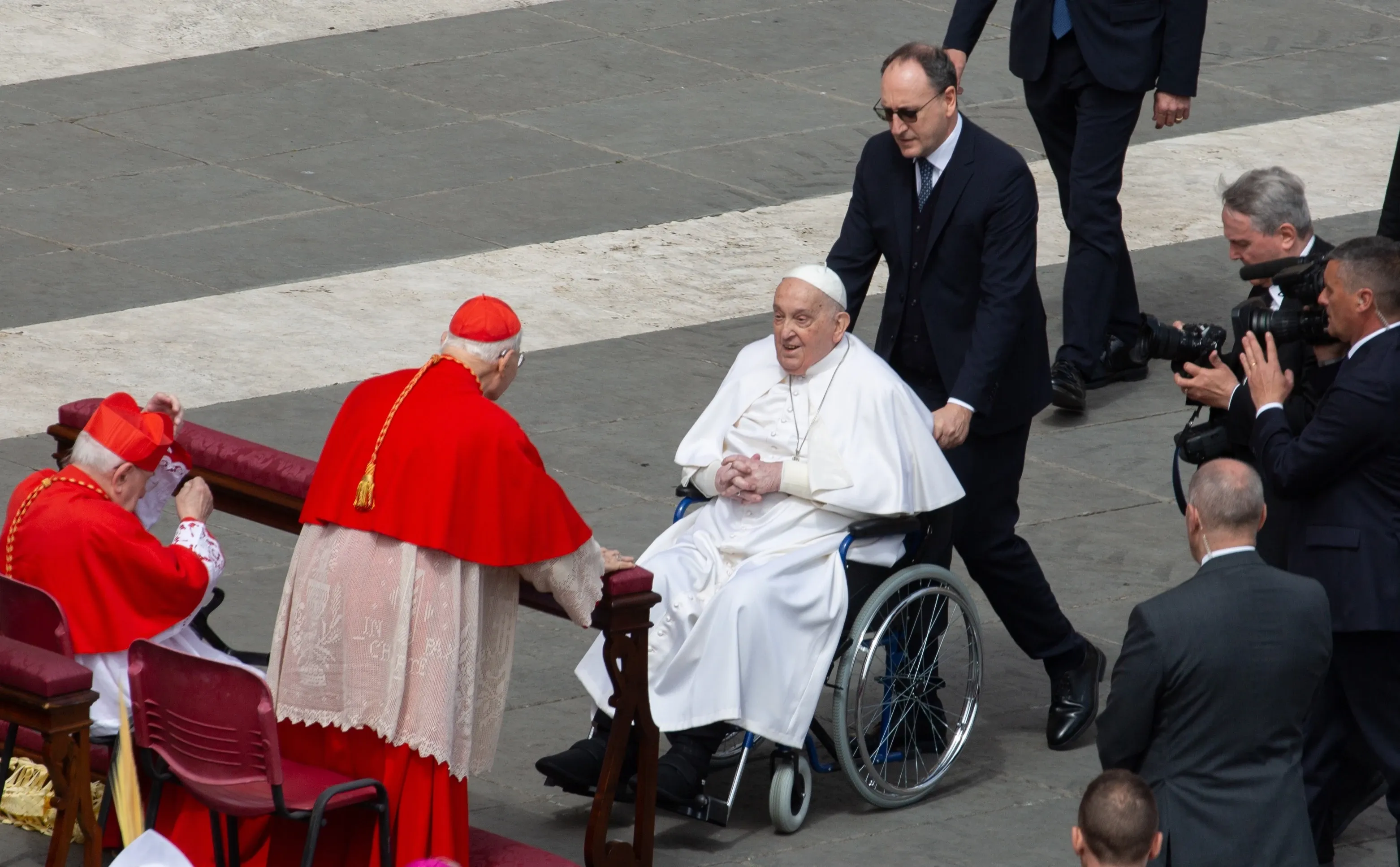Like Bakhdida’s Immaculate Conception Cathedral itself, the manuscript recently underwent a thorough restoration process.
The Central Institute for the Conservation of Books (ICPAL) in Rome oversaw the restoration of the manuscript, which was funded by the Italian Ministry of Cultural Heritage.
The 10-month restoration process involved consultation with experts at the Vatican Library, which has Syriac volumes dating back to the same time period. The only original element of the book that was replaced was the thread which bond it together, which is now kept in a protective container with the manuscript.
Pope Francis received a small delegation in the library of the Apostolic Palace on Feb. 10 who presented the pope with the restored liturgical text.
The delegation included the head of the restoration laboratory of ICPAL, Archbishop Luigi Bressan, the retired archbishop of Trento, and the leader of the Federation of Christian Organizations in International Voluntary Service (FOCSIV), the Italian federation of 87 NGO’s that helped ensure the book’s safety when it was found in northern Iraq.
During the meeting with the pope, the president of FOCSIV Ivana Borsotto said: “We are in your presence because in recent years we have saved and restored in Italy, thanks to the Ministry for Cultural Heritage, this “refugee book” -- a sacred book of the Syriac-Christian Church of Iraq, one of the oldest manuscripts preserved in the Church of the Immaculate Conception in the city of Qaraqosh in the Nineveh Plain.”
“Today we are happy to return it symbolically into the hands of His Holiness to return it to its home, to its Church in that tormented land, as a sign of peace, of brotherhood,” she said.
The spokesperson for FOCSIV told CNA that they hope that the pope will be able to bring this book with him during his apostolic visit to Iraq next month, but cannot say at this time if it will be possible.
“We believe that in bringing Kurdistan refugees back home to their cities of origin, as part of the action of development cooperation and international solidarity, it is also necessary to rediscover the common cultural roots, those that over the centuries have woven a history of tolerance and peaceful coexistence in this area,” Borsotto said after the audience.
“This allows for the recreation of the conditions that can lead the population to a cohesive and peaceful new collective and community life, especially for these people for whom the long period of occupation, violence, war and ideological conditioning has deeply affected their hearts. It is up to these projects of cultural cooperation, education, training to rediscover their traditions and a millenary of a culture of welcome and tolerance of the whole Middle East.”








